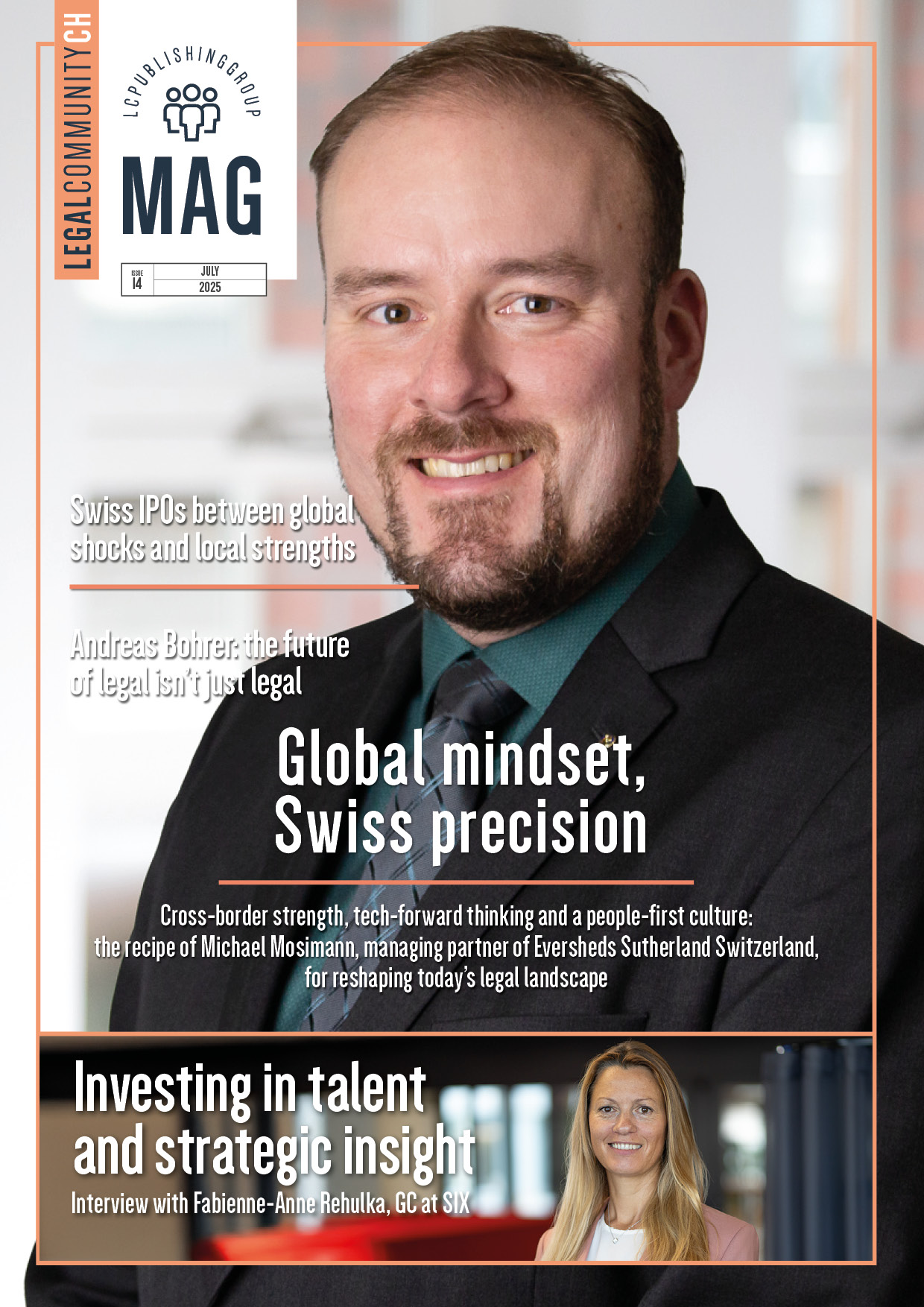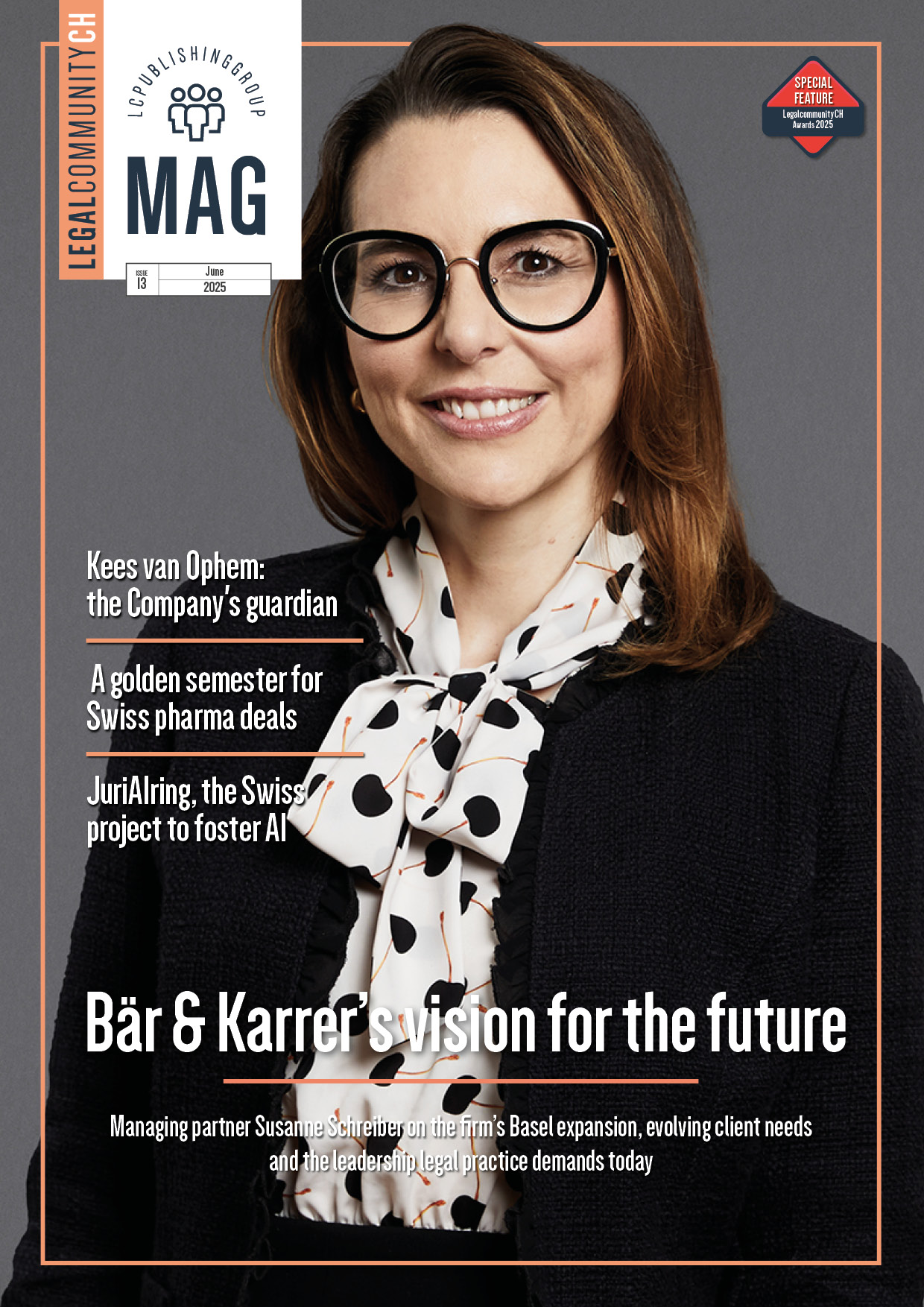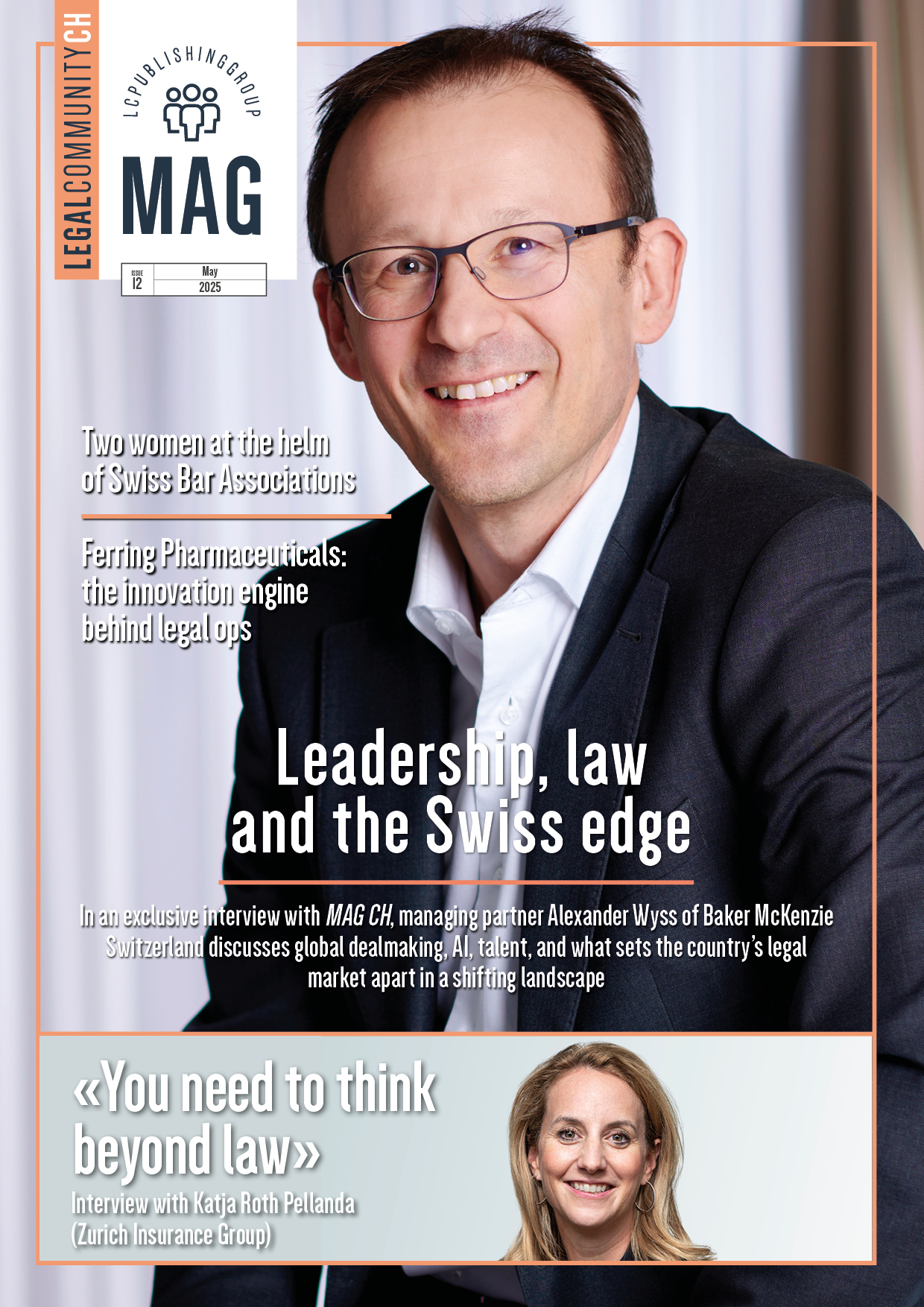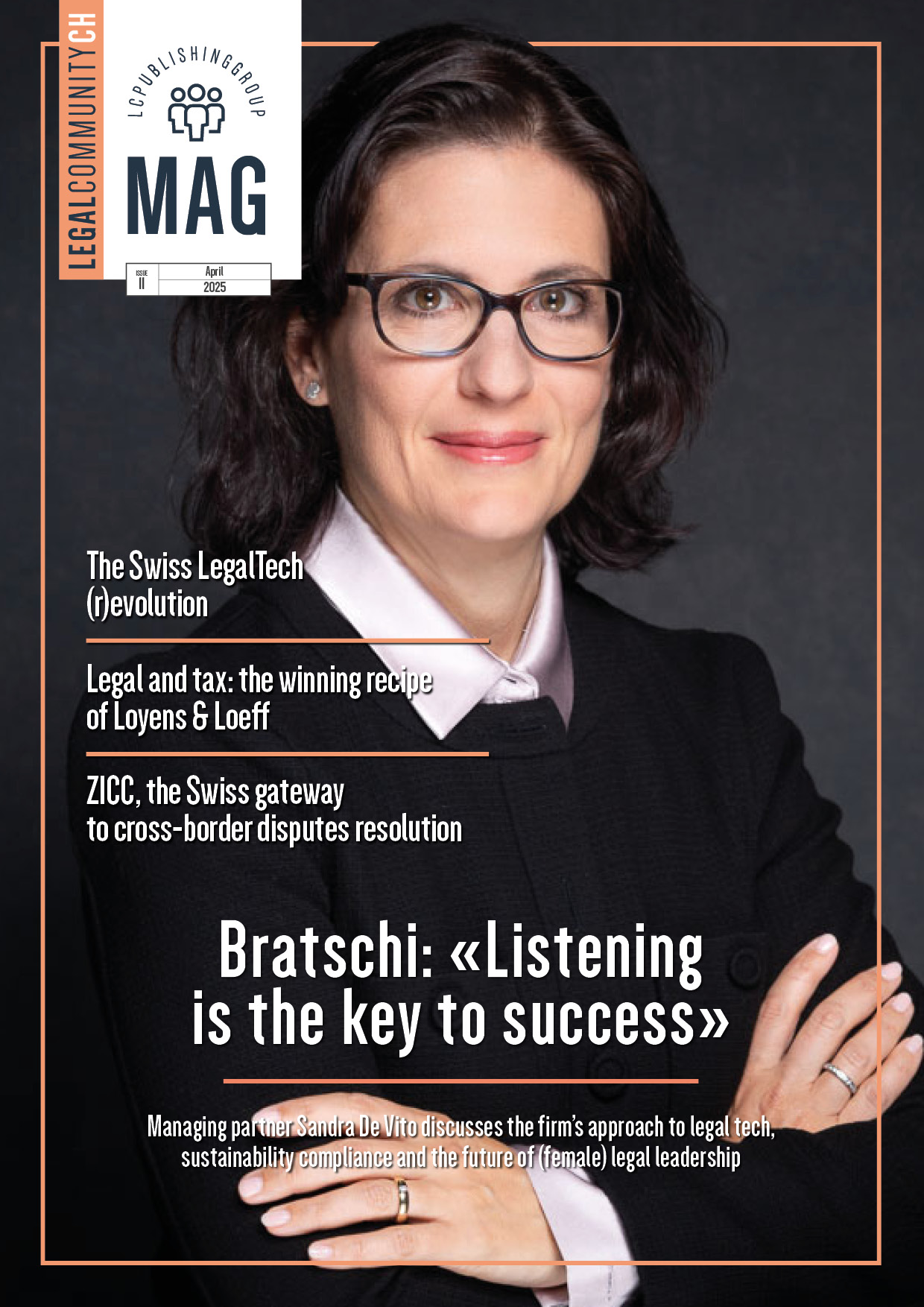Interim Legal: flexibility is the new normal
The goal is to provide flexible legal support in a market in full transformation where the use of the ALSPs is increasing. These organisations aim at improving the efficiency of the legal departments, which currently face numerous challenges. This is how Interim Legal – a newly founded company on the Swiss market – tries to respond to the present and, above all, to the ever-changing market needs. The founders Sebastian Fanai-Danesh (SF, pictured right), former manager of Axiom, and Marc Widmer (MW, pictured left), partner of the Swiss firm Roesle Frick & Partners, tell Legalcommunity.ch about the genesis of the idea and their future goals.
In particular, Interim wants to act as a link and innovative mediator: “My experience and this new venture bring together my passions for building relationships between in-house legal departments and talent,” explains Fanai-Danesh, who before Axiom also headed AFEX’s global recruitment department. For Widmer, however, the closeness to this type of business comes from afar if we consider that his father is one of the pioneers in the field of temporary staffing in Switzerland . “I had an interest in opening a flexible staffing company focusing on legal services. It was a perfect match as I met Sebastian”.
What is Interim Legal?
MW: Interim Legal is an alternative legal services provider, positioned in the Swiss market, bringing greater flexibility and efficiency in the way in-house legal departments solve legal challenges and buy legal services. Via our network of legal and compliance specialists, we address a variety of legal support challenges in-house legal departments face, from incorporating new expertise, tackling legal regulatory or commercial projects to managing the appropriate capacity within a legal team. With our business and operations centered in Switzerland, we aim to serve clients in the Swiss and International organizations with a presence in Switzerland who value the ability to work with a local partner who understands the legal landscape.
What’s the current legal department situation?
SF: The traditional legal department is faced with mounting challenges. Technology, the speed at which business decisions are made, and an uncertain regulatory environment have forced legal counsel to rethink the way they work. In parallel with this trend, legal departments are forced to work with greater limitations concerning their legal budgets.
So, what do you propose?
SF: Our services are designed to help alleviate these challenges first and foremost by helping them become more resourceful in their approach. This result is a legal department that is more responsive, more cost efficient, and a better business partner within their respective organization.
Why do you think efficiency has to meet flexibility?
MW: From the challenges legal departments face, there is a growing need to build flexibility into their business model in order to operate more efficiently. The traditional model for legal work engages fixed in-house legal staff or law firms. These choices may be the right solution when there is enough in-house capacity or a specialized matter for which a particular law firm is the correct partner.
But what’s different today?
MW: The modern in-house climate produces a lot of work for which in-house legal teams are stretched too thin or do not warrant the cost or expertise of a law firm. This is where the use of a flexible legal provider can act as an extension of a legal team to infuse capacity and the right capability for the work at hand, in turn creating efficiency in the way the legal department can operate.
You launched the venture in a challenging year. What’s the role of ALSP in the covid-19 scenario?
SF: The best partner an ALSP can be is to firstly safeguard any staff employed by the ALSP, while understanding the needs of the legal department requiring support. Covid – 19 impacts companies differently, and it is more crucial than ever to let legal departments guide the conversation of how we can be the best partner in these increasingly challenging times. Having mentioned this, the need to innovate and change the current model of the legal department has become more acute. Departments are facing budget restrictions while the current circumstances are producing additional legal work due to a reorientation of business strategy. Given our capabilities, we are positioned as an innovative partner to help solve these challenges.
What are the main lacks in the market Interim Legal will try to fill?
SF: Interim Legal takes the promise of the flexible legal service model but applies it to the business landscape of our specific regional markets. Our business model is built upon our knowledgeable and experienced team, as well as a strong operational infrastructure based in Switzerland. Whilst this service can be valuable for our clients, it is equally important to mention how alternative legal service providers can be valuable for lawyers or compliance specialists who choose to engage in this type of work either as a career step or longer-term option.
Another career path…
In the past, the legal and compliance career paths were limited to fixed positions with either a law firm or consulting firm, or as a specialized in-house position. There is no question that these career paths can be rewarding, but offer limited flexibility and choice for many qualified professionals within the modern day. With the introduction of flexible talent providers like Interim, we are changing the paradigm and introducing a third option which is entirely designed around our specialists’ availability and their practice area interest. It is the third career choice which can enable our professionals to forge a new path. For example, to transition from a law firm setting into an in-house counsel position for the first time, or to specialize in a certain field while experiencing different work cultures and practices.
What are your added values to the Swiss market?
SF: Our board member Hanspeter Widmer has over 40 years of experience managing and building some of the largest companies within the temporary staffing space in Switzerland. He also served for over four decades on the Board of Swissstaffing, the Association of Swiss Staffing firms. Marc Widmer is the President of the recourse commission of the collective bargaining agreement for temporary staffing in Switzerland. He also is involved in several working groups in Swissstaffing in connection with the implementation of labor laws and their regulation. Finally, through a trusted partnership with a leading technology and treasury provider we are able to access an operational infrastructure that was specifically developed for the Swiss temporary staffing industry and thus can guarantee an efficient and accurate execution of this service to our lawyers and clients.
How are your services innovative for the market? What are the main competitors?
MW: While there are competitors who offer the same service, there is still a lot of room in this market and we are excited to offer our capabilities and thus create more value for our clients and lawyers who decide to be a part of this growing industry segment. The more exciting point for us is that we see an increasing amount of opportunities to collaborate with consulting firms and law firms to tackle larger scale or diverse legal projects which involve multiple facets of expertise. We at Interim Legal know what work we are able to take on, and we are able to identify and partner with providers for a greater benefit to the client.
















